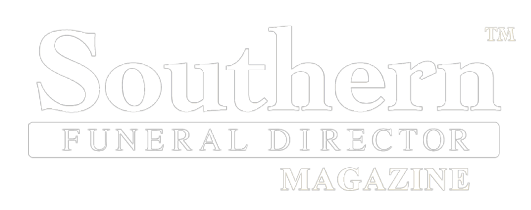(404) 312-6640
Imports vs. Exports - Pro's and Con's
Imported caskets vs Domestic caskets have been a major subject of discussion within the funeral profession for the last 15-20 years. Many contend the statement “how dare to take U.S. manufacturing jobs and sub them out to foreign countries to help increase profitability and lower labor and production costs... Our unemployment rate is skyrocketing and we are providing manufacturing jobs for other countries rather than our own!” Truth of the matter is, many things we use in our everyday life is imported, but since we only scrutinize more of our own profession, we overlook the computer and electronic products that account for $401 billion in 2017. Including much of the gas we put in our hearses to facilitate a funeral.
According to the 2016 tariff and trade data from the U.S. Department of Commerce and the U.S. International Trade Commission, the following countries contribute the bulk of all imported caskets. This includes: Mexico 178,352; China 67,751; Canada 6,048; Taiwan 787; Dominican Republic 622; Italy 582; Czech Republic 136 and Oman 58.
During SFD’s attendance at the recent ICCFA in Las Vegas back in April 2018 and the NFDA Expo in Boston, October 2017, it was interesting to note that a significant number of independent casket distributors worked and visited the SICH booth. SICH has made a big splash with its products and competitive pricing in the U.S., not to mention the other import casket and urn distributors that displayed, as well.
President Donald Trump has called for a reduction in the trade deficit and has consistently pushed for an ‘America First’ trade policy. His administration’s move to impose tariffs on Chinese imports and the subsequent retaliation by the Asian economy has stock market investors on edge. The trade deficit with China was at $33.2 billion as of May 31, 2018, up from $28.0 billion on April 30, 2018. At the end of June, the trade deficit with China for the year stood at $185.7 billion.
President Trump’s administration revealed tariffs of 25% on up to $50 billion worth of Chinese products on June 15, 2018. The Trump Administration is reportedly looking to add an additional tariff of 10% on up to $200 billion worth of Chinese goods.
On August 8, 2018, the Chinese Ministry of Commerce announced that it will retaliate against the most recent round of U.S. tariffs on Chinese imports. The 25% charge on $16 billion worth of U.S. goods will target 333 goods, including vehicles, fuels and fiber optical cables. At the current rate of casket imports, approximately 250,000 total caskets will be imported from the countries of China, Mexico and Canada. Most units will be from Batesville and Matthews. That’s 30%+/- of all metal and hardwood caskets sold. In the event these products get caught up in a trade war, we no longer have the USA casket manufacturing capacity to re-shore this type of production volume.
Does this mean more jobs for manufacturers to keep up with the potentially renewed need for “supply and demand” for casket parts in the U.S. Yes it does on the demand side, no it doesn’t for the supply side, as the manufacturers would have the daunting task of gearing up production 24/7 to produce the casket components needed to manufacture the metal and hardwood caskets and meet the needs for the funeral directors and end users. According to the 2016 tariff and trade data from the U.S. Department of Commerce and the U.S. International Trade Commission, the following countries contribute the bulk of all 250,000 imported caskets. This includes: Mexico 178,352; China 67,751; Canada 6,048; Taiwan 787; Dominican Republic 622; Italy 582; Czech Republic 136 and Oman 58.
The rise in Cremation already eliminates 30,000+ caskets per year even with the growth of the death rate due to baby boomers. And the Cremation will only continue to rise.
In closing, it has been touted by import suppliers that their units have the same quality as the domestic caskets made by the bigger U.S. suppliers. The only difference is that the import supplier passes the savings on the the funeral home up front, so that $1,000 casket can be purchased for $700 and the funeral owner does not have to worry about paying his bill within 30 days to keep his 30% discount and/or rebate paid at the end of the year. Take the discount up front and move on.
The negative side for the import supplier is on the quality control side. If the container load of caskets they receive has a blemish on the unit, they are stuck with that unit and cannot return in a day or so for a credit or replacement. The import supplier will either have to fix the blemish himself, or if too severe, sell for less. Many of the exporters will try and work out a settlement to insure future business. Also, if the buyers of imports sell alot of the same unit and the distributor runs out, he is at the liberty of the next container load that may be another 4-8 weeks out. That is why many distributors have alliances with other U.S. manufacturers to have quick access to replenish a particular style and not depend solely on overseas shipments and freight delays.
Either way, the most important thing is to supply the end user, the families we serve, with the highest quality of products and services they deserve and domestic and imports both serve the product end to the highest degree. It’s the American way!
Originally published on on page 4 of Southern Funeral Director Magazine w August 2018






Comments